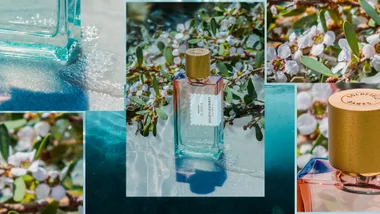Persistent, active acne can be a really difficult thing to go through for many people, requiring much specificity to find an anti-acne routine that works for them. However, once it starts to heal, removing the acne scars and pit marks left behind can be nearly as hard. How on earth can we get rid of acne scars, you ask?
Whether it’s a bit of hyperpigmentation, a small scar or even texture changes to your skin, dermatologists are the experts to turn to in order to treat these concerns.
We spoke with dermatologist Professor Deshan Sebaratnam, senior lecturer at the University of New South Wales (UNSW), about the best way to approach and treat acne scars and marks to heal the skin over time. Consider this your definitive guide.
What Are Acne Scars?
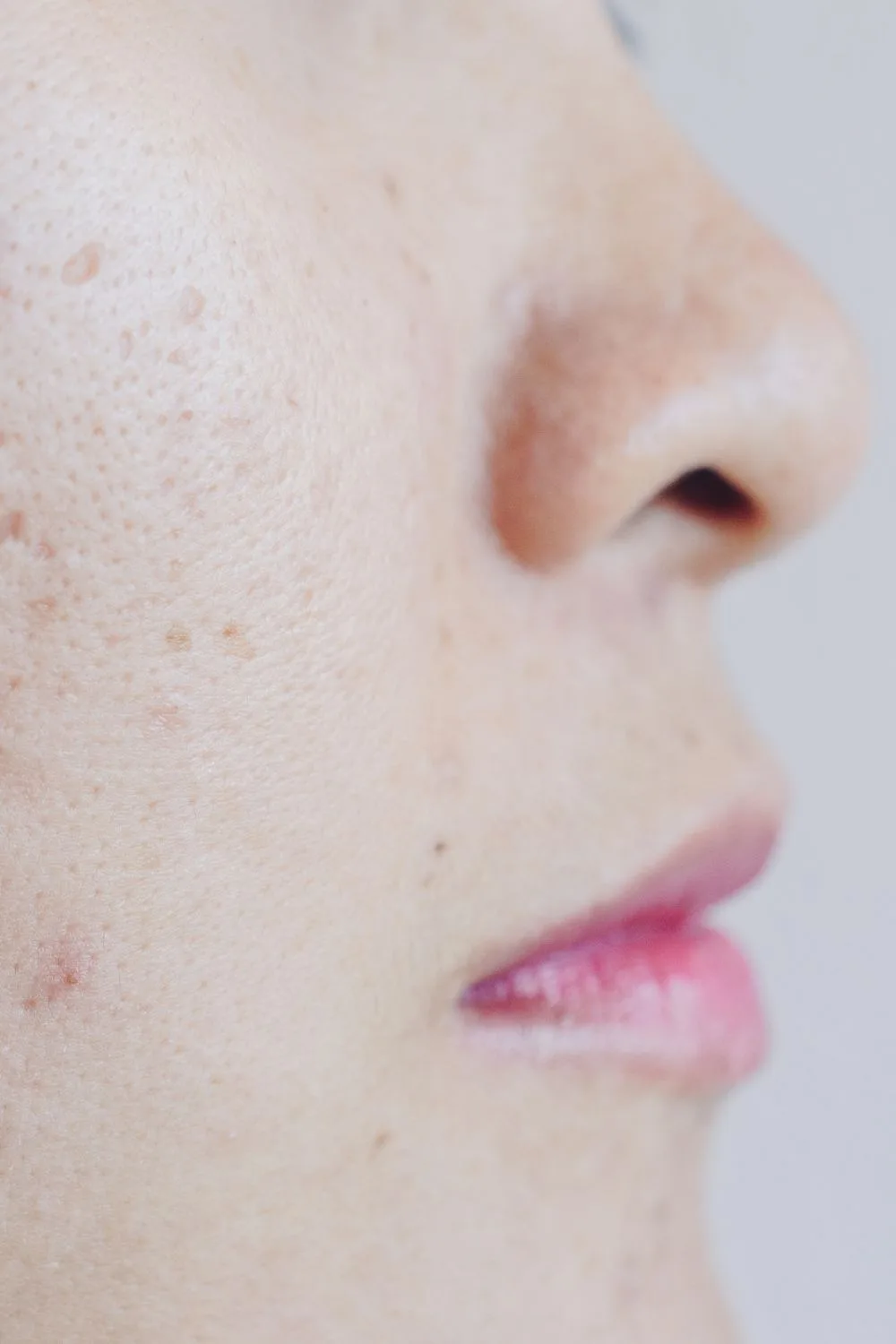
First you may be thinking, why does skin sometimes scar when it comes to acne, and sometimes not?
“Acne scarring occurs when the inflammation associated with acne leads to structural damage within the skin,” Sebaratnam explains.
There are lots of different types of acne scarring, but it all comes from the same source, pimples that are created due to inflamed or infected sebaceous glands.
What Causes Acne Scars?
Daniel Isaacs, Director of Research at Medik8 adds, “Acne scars are usually the result of inflamed blemishes caused by skin pores engorged with excess oil, dead skin cells and bacteria.”
“The pore swells, causing a break in the follicle wall. Shallow lesions are usually minor and heal quickly. But if there is a deep break in the wall of the pore, infected material can spill out into surrounding tissue, creating deeper lesions. The skin attempts to repair these lesions by forming new collagen fibres. These repairs usually aren’t as smooth and flawless as the original skin.”
What Is The Difference Between Acne Scars And Hyperpigmentation?
Acne scars can come in many different types and stages, and that depends on how much inflammation, and thus damage there has been.
It’s common to experience temporary changes to the skin when it is recovering from a breakout, such as hyperpigmentation.
Sebaratnam says, “There can be temporary changes (like redness or pigmentation) or more permanent changes (like depressions within the skin).”
Generally, acne scarring is referring to slightly longer-term changes to the skin as the result of an acne breakout. There are different terms for acne scarring, such as ‘icepick’, referring to deeper, narrow scars, ‘boxcar’, referring to wider scars with defined edges and ‘rolling’, referring to broader sections of scarring with undefined edges that almost appear to ‘undulate’. There is also ‘hypertrophic’ scarring, which leads to raised scars on the skin.
Who Is Most At Risk Of Getting Acne Scars?
“Anyone can scar but those who aggravate the skin will inevitably scar quicker and deeper,” says Isaacs.
According to Cristina Casaldáliga, mesoesetetic Pharma Group International Trainer, “The risk increases when the patient has inflammatory (swollen, reddish, and painful) acne, such as acne cysts and nodules. This grade IV type of acne tends to penetrate deep into the skin, damaging the skin.”
How To Prevent Acne Scars?
First of all, stop picking your pimples! Isaacs explains, “Bacteria can increase the risk of additional cysts forming and can lead to the development of a larger scar forming.”
Additionally, he recommends staying out of the sun, “as over-exposure can darken scars, making them look more prominent”, and warns, “Don’t irritate inflamed skin. Over-washing and scrubbing scarred areas can further reduce skin elasticity and heighten the appearance of scars”.
Casaldáliga also suggests, “The quicker the inflammatory acne is treated, the less the risk of scarring”.
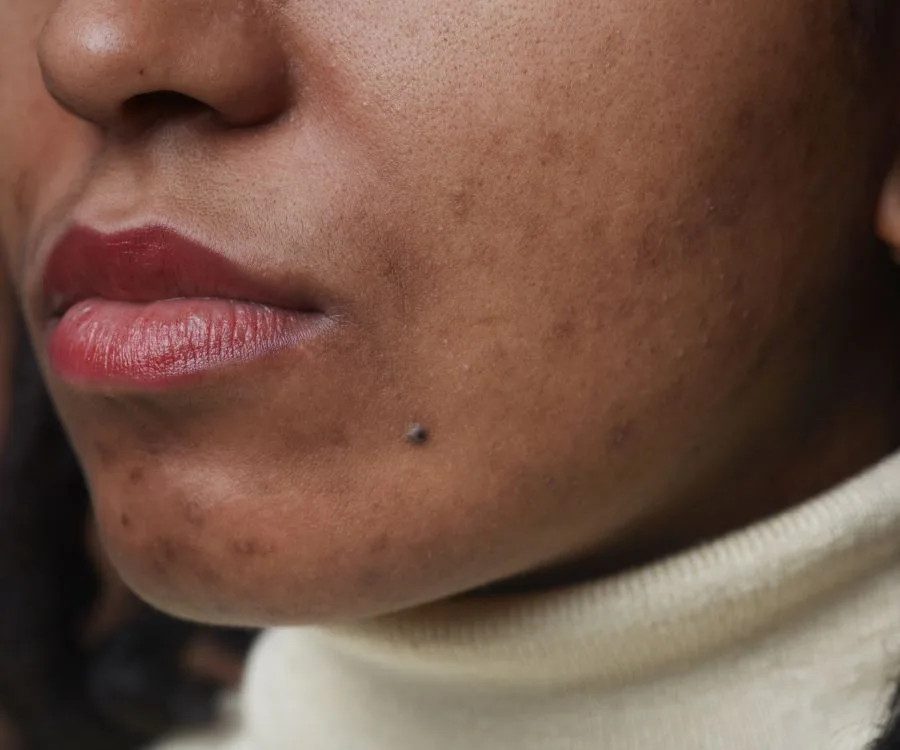
According to Sebaratnam, “The best way to prevent acne scarring is to seek medical treatment quickly.”
Changes in texture of the skin especially are more difficult to treat, so it’s important that you seek out support from your GP, and potentially a referral to a dermatologist.
It would be better to go early for treatment to assess your skin, than to wait for them to heal without input.
Should You Be Using An Acne Scar Removal Cream Or Serum?
There are many products available on the market that are designed to help with skin clarity, for example, retinols, Vitamin Cs and salicylic acid.
These serums and creams have their place in any good skincare routine, but it’s the view of the experts that they may not be enough.
When it comes so smaller scars and pigmentation, Sebaratnam admits, “To be honest, nothing over the counter [can assist].”
If temporary redness is a problem, he says a green-base colour corrector can help to camouflage the redness while it heals.
Doctors have a range of treatments in their arsenal though, including topical gels available through prescription to help with redness by narrowing the blood vessels under the skin, but an appointment would be needed to discuss this.
Can You Remove Acne Scars Naturally?

Acne scars are unlikely to heal on their own, and require the assistance of a trained professional. However, hyperpigmentation can sometimes fade with time.
When Should I See A Dermatologist For Acne Scarring?
Pretty much as soon as you see scarring start to develop from your acne, you should consult a doctor or dermatologist.
“See your GP as a first line,” says Sebaratnam. A dermatologist can be useful when, “acne is severe or exerting a significant impact on your quality of life.”
“There are certain acne medications that can only be prescribed by a specialist dermatologist (this is a doctor with the letters FACD behind their name).”
What About Treating Deep Acne Scarring, Pitted Skin And Texture?
According to Sebaratnam, “Once there are texture changes to the skin, it is challenging to improve these.
“Prevention is better than cure. Most at home devices are unlikely to offer significant benefit,” he adds. “There are different types of acne scars —ice pick, hypertrophic, boxcar, atrophic —and different types of scarring require different treatments.”
Some treatments a dermatologist may recommend include:
- Chemical Peels: this may include spot treating icepick and boxcar scars with acids.
- Ablative and Non-Ablative Laser: Ablative lasers can be very effective but can remove the top layer of skin, while non-ablative lasers use heat to treat the underlying tissue.
- Fractionated Radiofrequency: this uses heat to help improve the ‘remodelling’ in the skin and is great for acne. Sebaratnam says it is “colour blind” so is “great for treating a range of dermatological conditions in skin of colour.”
- Subcision: uses a small device to free the acne scar tissue and normalise the skin’s undulation.
“There is no ‘one size fits all’ approach. Treating acne scars requires a bespoke approach,” Sebaratnam adds.
It appears that there is absolutely no harm in booking that first GP appointment to investigate possible avenues for treatment. It might even end up cheaper than buying endless serums and creams that may not be strong enough to do the job.
What At Home Products Are Best For Acne Scarring?
While an acne scar will need proper attention from a dermatologist, hyperpigmentation and other smaller blemish problems can often benefit from a foolproof skincare routine.
Some of the key products we love for this purpose include:

Acne Hack OG Bundle, from $49.90, TBH Skincare
This cleanser and spot treatment combo is a really great way to help pull the impurities out of the skin before they start to give you major problems. The gentle cleanser is great at warding off breakouts, while the spot treatment allows you to get to the bigger pimples without needing to pop them.

TBH Skincare Patch It Up, Everyday Patches, $19.95, Adore Beauty
Having tried many pimple patches over the years, the acne prone in the marie claire office cannot go past these pimple patches to bring nasty under-the-surface pimples up, while also treating and correcting pigmentation.
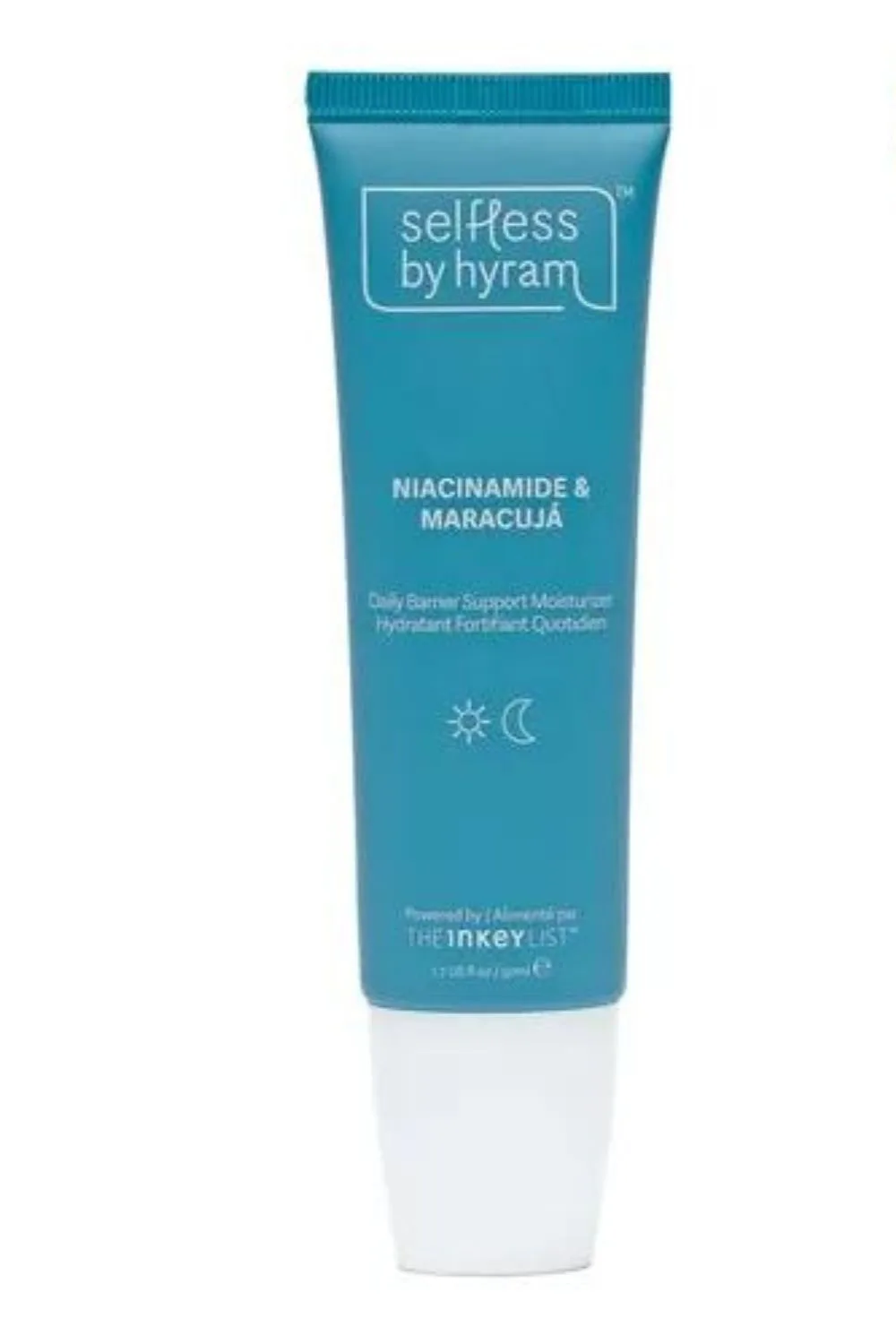
Selfless by Hyram Niacinamide and Maracuja Daily Barrier Support Moisturizer 50mL, $42.00, Sephora
If you’re struggling from acne, you need to make sure your skin barrier isn’t consistently getting stripped by anti-acne products, as it will only make it worse. This thin formula is great for oily skin and will add balance back into your routine.
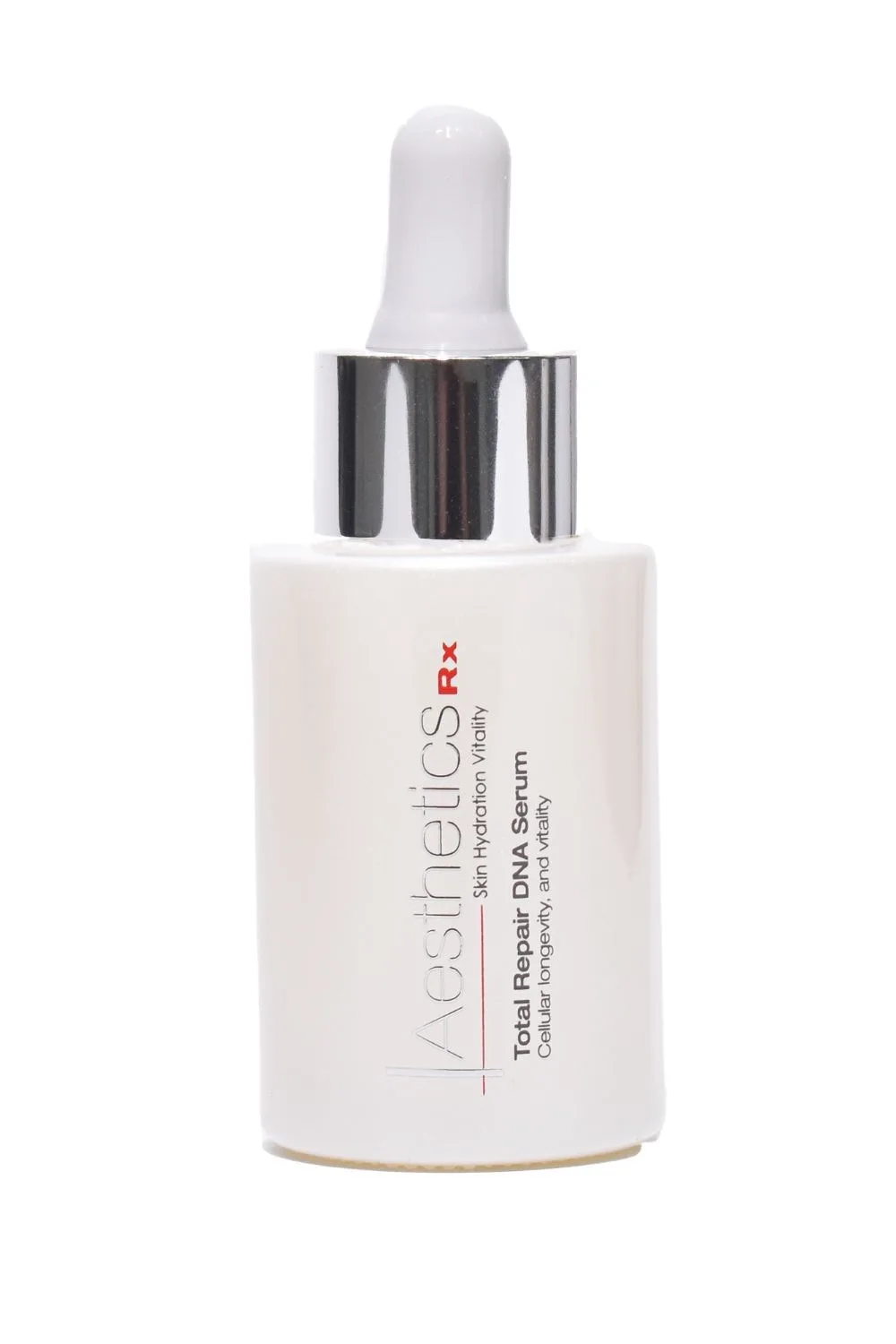
Aesthetics Rx Total repair DNA Serum 30ml, $159, Adore Beauty
This serum really does what’s on the bottle, aiming to improve and repair the skin. The acne prone in the office are obsessed with the lightweight formula, and the retinal-peptide combo is amazing for turning over the skin layers and helping your healthy skin to come through shining and beautiful. It’s a strong formula so apply every 1-3 times a week to begin with and work up from there.
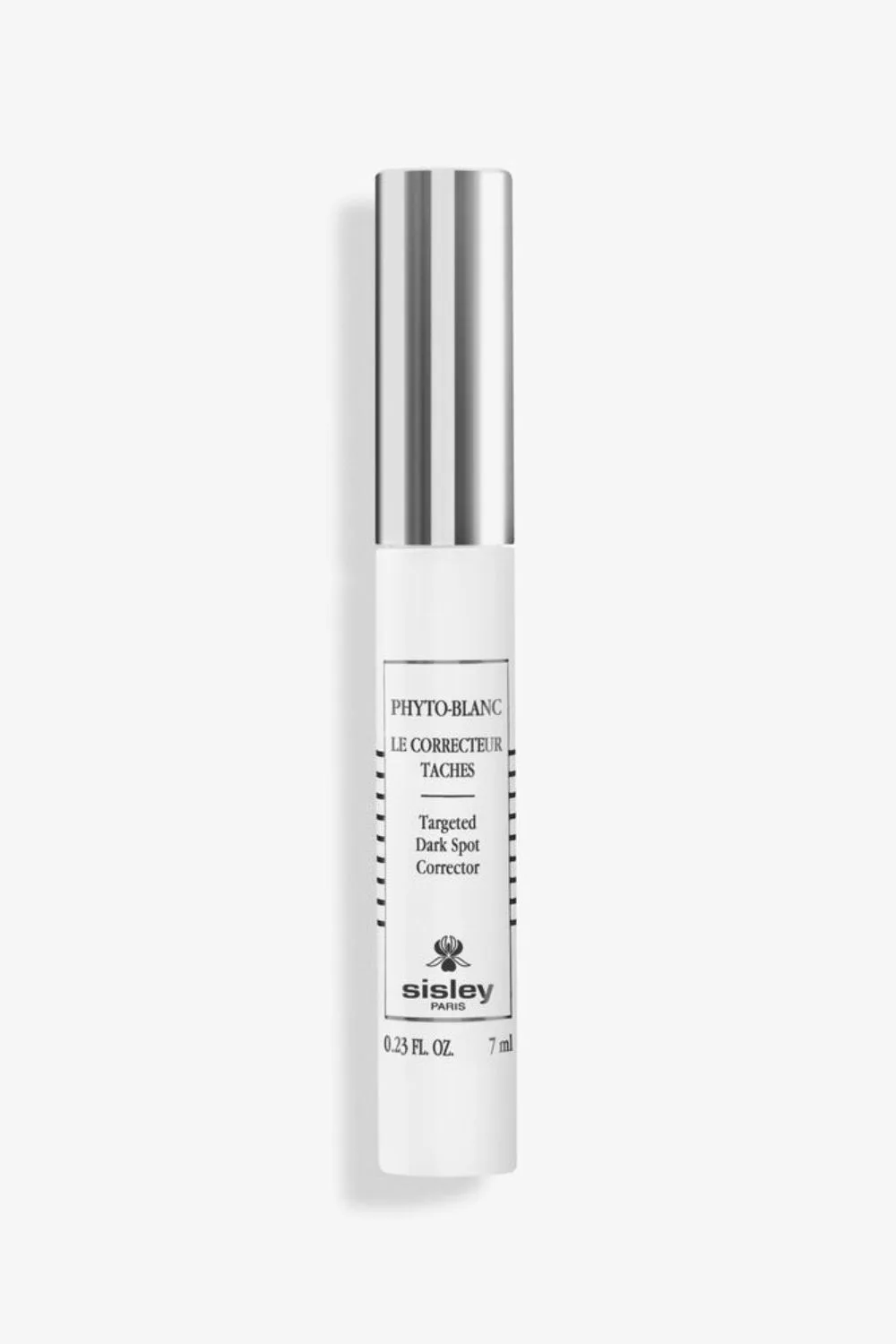
Sisley Paris Phyto-Blanc Targeted Dark Spot Corrector, $220, Sisley Paris
This is a brilliant product to spot correct any pigmentation that seems to be hanging around the skin longer than you’d like. It has a patented formula using Meadow Bistort extract to fight even older dark spots that may have been on your skin for a while.
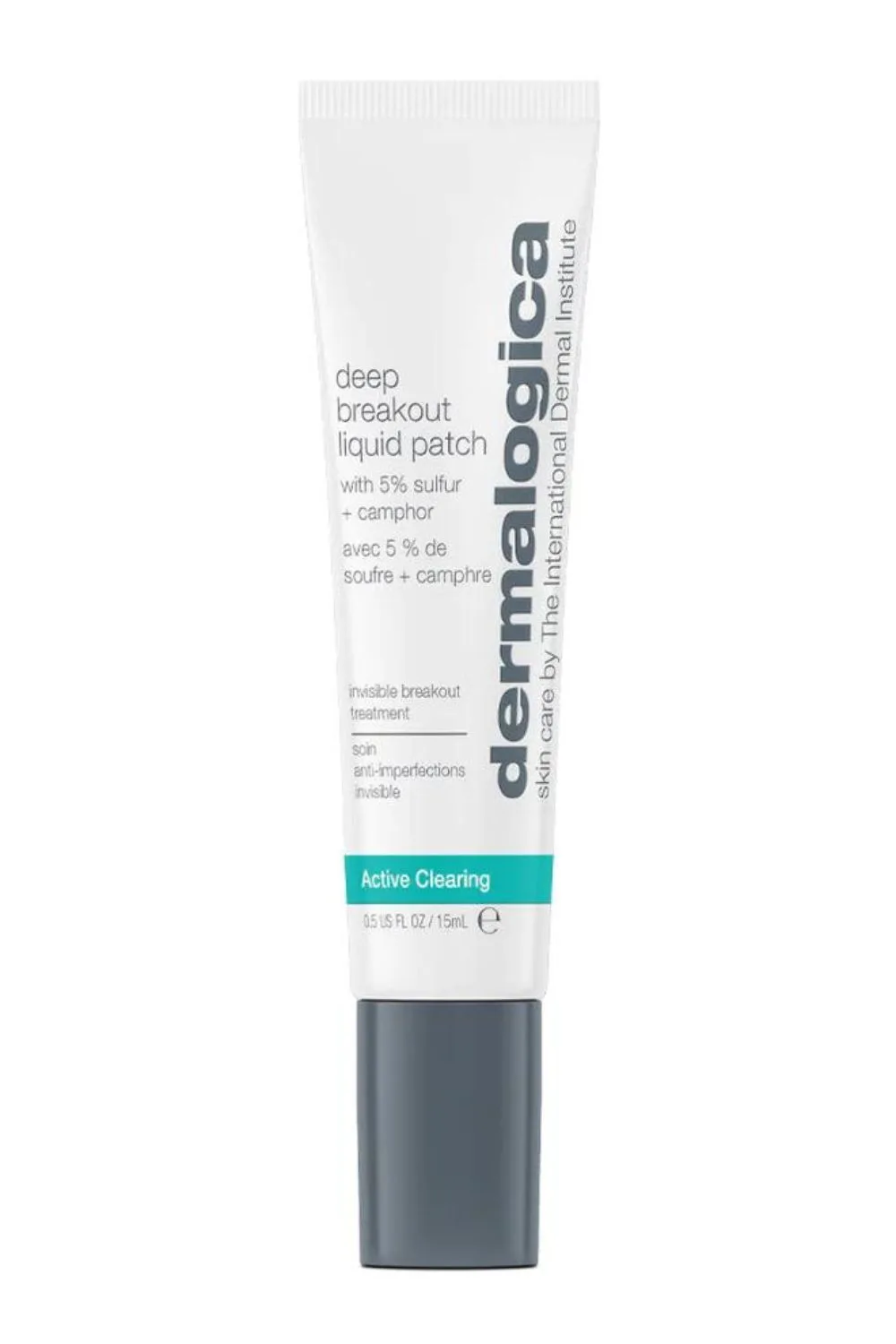
Dermalogica Deep Breakout Liquid Patch, $55, David Jones
If you love pimple patches but find you’re running out of them before you can say ‘acne’, then maybe it’s time for a new solution. This small tube is pimple-fighting power in a bottle. The sulfur-based spot treatment goes on like a liquid but creates a seal over your acne, helping to prevent the bacteria from spreading and dry out angry spots. Simply apply as soon as you feel a blemish forming and you’re good to go.






